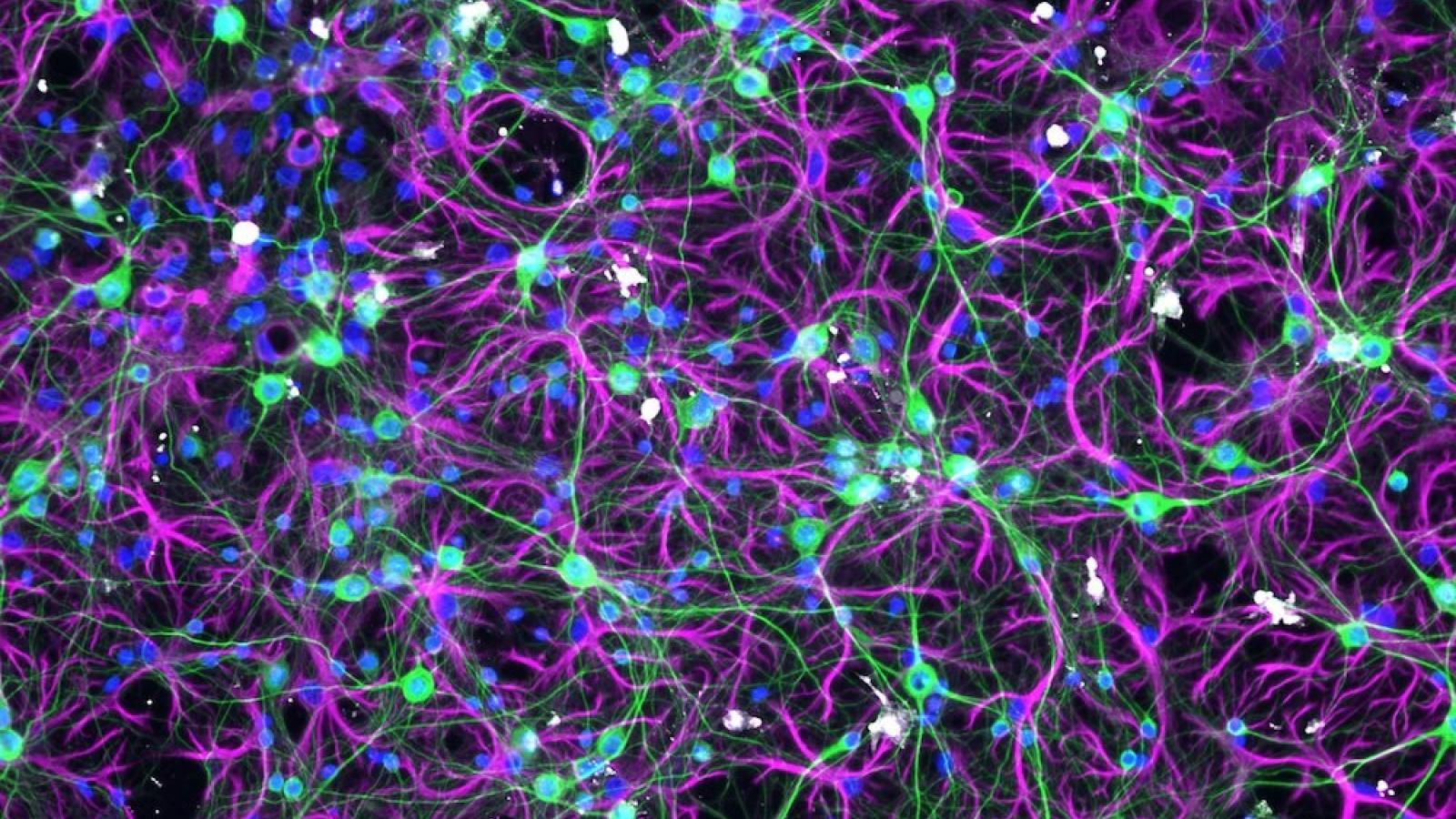A new study by Prof Will McEwan and Dr Sophie Sanford (UK DRI at Cambridge) has revealed that type-I interferons, a part of the innate immune response, may increase the build up of misfolded toxic tau protein in Alzheimer’s, and could provide a new avenue for disease therapeutics. The study is published in the journal Alzheimer’s & Dementia.
What was the challenge?
Molecules known as type-I interferons are a key part of the innate immune response – the body’s first defence against infection. Secreted in response to viral infection, they induce an anti-viral response in infected and neighbouring cells that limits the spread of viruses.
Levels of type-I interferons are known to be increased in Alzheimer’s but their effects on disease progression are not well understood. The team set out to investigate the role of these molecules in the disease.
Our study demonstrates a link between the inflammatory state that is known to occur in Alzheimer’s diseased brains, and the accumulation of tau, thought to be a driver of neurodegeneration.Dr Sophie SanfordUK DRI at Cambridge
What did the team do?
First, the researchers used a cellular model of Alzheimer’s, treated to mimic infection with a virus. They found that mimicking viral infection in the cells increased tau pathology. When this was repeated in cells taken from mice which lacked susceptibility to type-I interferon signalling, mimicking infection did not lead to increased tau pathology.
They then confirmed a similar finding in a mouse model of Alzheimer’s – indicating a critical role for type-I interferon in the accumulation of tau in Alzheimer’s disease.
What was the impact of these findings?
This study suggests type-I interferon could potentially be implicated as a link between inflammation and tau pathology in Alzheimer’s. Type-I interferons could therefore be a potential therapeutic target for Alzheimer’s and other tau-related diseases.
Dr Sanford said:
"Our study demonstrates a link between the inflammatory state that is known to occur in Alzheimer’s diseased brains, and the accumulation of tau, thought to be a driver of neurodegeneration. It therefore provides a potential mechanistic basis for how tau spreads in disease."
The researchers are keen to better understand how these results relate to disease progression in the human brain.
Prof McEwan explained:
"In the future, we want to understand what the signals are for the production of interferon in the context of disease. This could be viral infection, response to damaged cells or the aggregated proteins themselves. In doing so, we hope to be able to target this pathway therapeutically."
Read more about this study in the full paper below or Sophie’s summary on X/Twitter. Find out more about Prof Will McEwan’s research by visiting his UK DRI profile.
Reference: Sanford, SAI, Miller, LVC, Vaysburd, M, et al. Alzheimer's Dement. 2023; 1-13. https://doi.org/10.1002/alz.13493
Article published: 27 October 2023
Banner image credit: Dr Sophie Sanford
